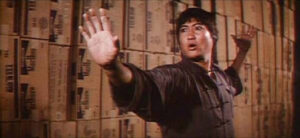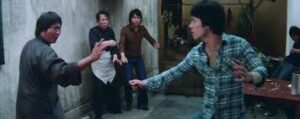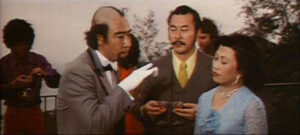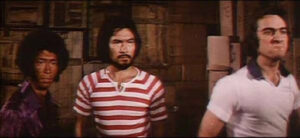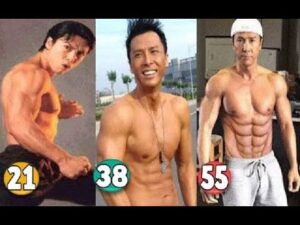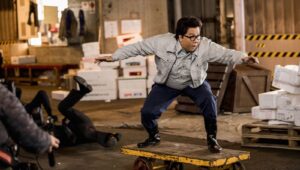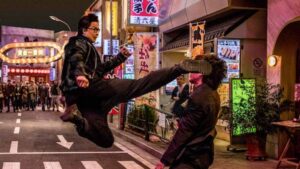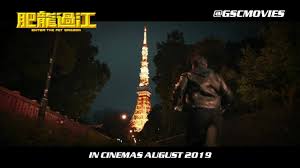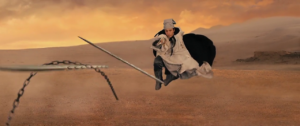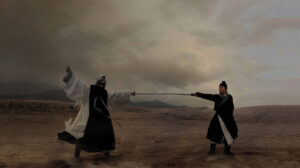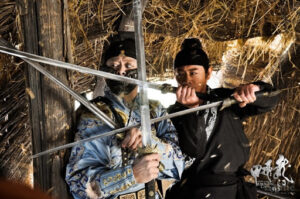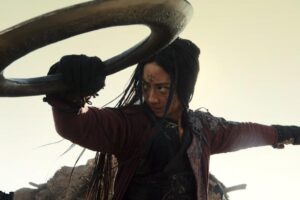Action Dragons!
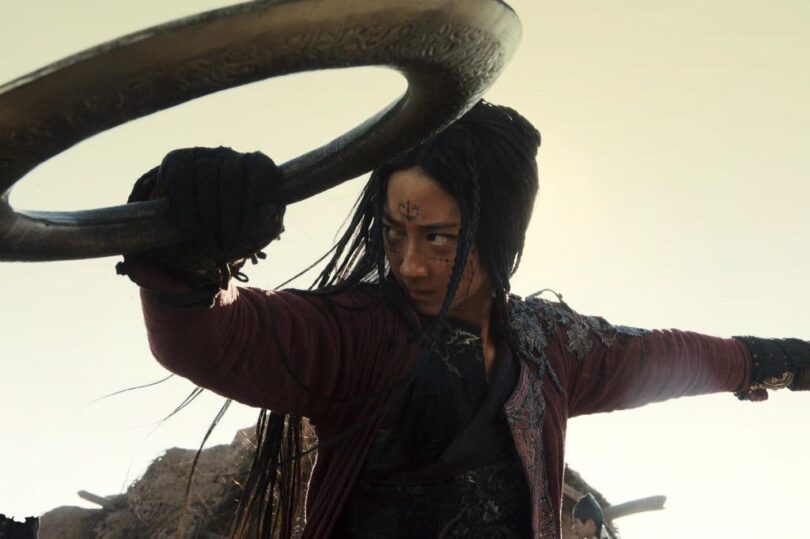
An article in the latest issue of Blackbelt magazine laid out the 20 best martial arts films of all time. The article is one worth paying attention to, as the opinion maker is Dr. Craig D. Reid, who is the author of the canonical books when it comes to martial arts films, the various “Ultimate Guide to Martial Arts Films of…” series. He’s probably seen and written about more films of the genre than anyone out there. And for the magazine, he’s written a new “20 best” list three times now, roughly seven to eight years apart – 2005, 2012, 2020. Interestingly, few films have remained the same between the lists, which might indicate that films have just gotten better with time, except that, for example, the current list features quite a few films from the 1970s and 1980s, that didn’t appear on earlier lists.
So what happened to the ones he thought were better back then than he does now? Of course, it may simply be an intent not to repeat recommendations, totally understandable, and no one ever takes the word “best” in those lists as gospel. I decided, given that we still have plenty of downtime in Argentina’s quarantine, which continues, seven months plus in, to watch my way through his lists (at the moment just the 2012 and 2020 lists, as I haven’t found the 2005 list online anywhere). In no particular order (well, actually the order I was able to find copies of the films to watch). Spoilers ahead….
I’m immediately off on a tangent, as one of the recommended films in 2019 was the new “remake” of Enter the Fat Dragon, which came out this year. Before getting to that, I decided to jump back to the original, which came out in 1978 and starred Sammo Hung, now one of the preeminent directors of martial arts films. The film was produced as a parody of the Bruce Lee film Way of the Dragon, albeit the title is a play on another Lee film, Enter the Dragon. In this film, 26-year old Hung plays a young man who has grown up on a pig farm, who idolizes and tries to emulate Bruce Lee, at least in fighting, if not spirit, whose father decides to send him to “the city” to work for his uncle and get some exposure to the outside world. Now, first off, Hung isn’t fat. He may be a little chubby, stocky, in the midsection, but really, he’s pretty much solid muscle, and he moves faster and more agilely than a whole of slim and trim martial artists out there. As one would expect from the farm boy goes to the big city trope, he gets himself into constant trouble because he doesn’t understand the ins and outs of urban life, and his first reaction to virtually anything amiss is to start a fight. In general, he wins, time after time, mostly against young street thugs, but at the cost of some level of damage, destruction, and dismay to things and people around him. By the end, after a culminating fight scene taking on three experts in different fighting styles, and only sort of barely being the hero of the day, he decides he’s had enough of the big city and heads back to the pig farm. I had seen this film before, years ago (the English subtitled version didn’t come out until 1999, and an English dubbed version wasn’t released until 2019, though both used the original 35mm cut transferred to DVD – the dubbed version was done by a German company, initially into German, and there are a few points where they forgot to re-dub English over German, but not enough to make it hard to follow). Biggest negative for me was probably the stereotyping of a Japanese and a Black character, both played by Chinese actors made up in ridiculous looking “costume” for lack of a better term. Then again, it was intended as a parody of the wave of Bruce Lee style “Bruceploitation” films of the 70s, so that may have been intentionally overdone as a spoof.
Now, it turns out that watching the 1978 version while, not a waste of time, really has nothing to do with the 2019 Enter the Fat Dragon, starring Donnie Yen, one of my favorite martial arts actors. There’s literally nothing about them other than the title that’s the same. Yen, who’s in damned good shape for someone who was 55 years old at the time of the filming, is trim, muscled, and in “fighting shape”. He plays a Hong Kong police sergeant who can never quite seem to get things right – if there’s any similarity to the original film it’s that while he’s great at tracking down and capturing the bad guys, he always leaves a trail of destruction in his wake. After one particularly egregious offense, his supervisor relegates him to desk duty in the evidence locker; and his girlfriend, a local TV star, dumps him. In a depression, over seven months of deskbound monotony, he slowly eats himself to an extra 60-70 pounds of fat. For inexplicable reasons, he’s pulled from the evidence room to handle a prisoner transport to Tokyo, where he quickly becomes embroiled in travails as it turns out that, and here’s where some solid racism comes in, all Japanese, and particularly Japanese police, are corrupt, untrustworthy, lying, scheming human beings, as opposed, of course, to the noble Chinese like him, who must now, while on foreign soil, destroy an entire yakusa operation and bring down the corrupt police department, single-handedly. It’s kind of off-putting, as is the way he reunites with his estranged girlfriend, suddenly, in Tokyo, where she just happens to suddenly be hanging out with said yakusa. As a story, I can’t say that this one wowed me, but damn, Yen has some moves. Even in the fat suit that apparently took hours to get him into, he still manages to don some upscale apparel, and leaps, jumps, punches, kicks, handles various classic Chinese weapons, some solid hardcore parkour, and more, with three really great fight scenes – one on the streets, one in the Tsukiji fish market, and one on the catwalks of the Tokyo Tower. The film is worth watching just for those.
In a switch up from the high minded view of the Chinese vs others of the two previous films, Jet Li’s Flying Swords of Dragon Gate casts the Chinese as the bad guys this time. The brutish Tartars, which whom he allies himself, turn out to be the good guys. In particular, court officials from the notorious “East Bureau” and “West Bureau”, as well as various courtiers to the Emperor, who, himself, does not make an appearance. Jet Li plays a sort of vengeful Robin Hood-ish character… well, no, not exactly, as he’s not out robbing from the rich and giving to the poor, but simply hunting down the corrupt and rich officials and killing them. That’s, more or less, the plot. There’s some vague romance background as well, never fully realized, there’s some treasure, but it’s more a backdrop and never comes to anything. It’s really just about Li’s character, Zhao Huai’an, tracking down and killing these folk. He particularly despises eunuchs and makes sure to subject them to overly grisly deaths when possible. There are, in line with the movie’s title, a lot of flying swords. And knives. And other things. Seemingly endless flying weapons, including one antagonist who has the ability to turn his sword into boomeranging shards of blade. And sometimes those who wield them fly too. Zhao faces off against his biggest enemy in a final fight literally connected by a chain, while whirling around in a tornado, including a moment when they land on a flying bit of a building and continue the flight on “firmer footing” as the flooring spins madly in the clouds. The fight scenes are cool in a science fiction-y way, with great choreography, albeit ridiculously unbelievable. It’s fun, pure escapism, and a tad bloodthirsty.
